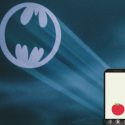Most people report that they are not comfortable asking their loved ones for help when they are going through a bout of depression and/or are having suicidal thoughts. Some people report that they are afraid that their loved ones will judge them for reaching out, while others report that they don’t know how to ask for the support that they need.
Many people are not taught how to ask for support, what to say, and what to look for. However, many of my clients are surprised to find that if they are able to let their friends and family know that they are struggling, they are usually able to receive the support they need. In fact, in my experience, people are usually glad to know that their friend or family member was able to reach out to them and ask for support, as they might not have realized that their loved one was going through a bout of depression or was feeling suicidal.
There are many informative posts about how to help someone who is feeling depressed or suicidal. However, not many offer suggestions as to how to ask for help. Since “the right” words can be difficult to find when we are struggling, it can be helpful to use a pre-established signal, such a picture or an emoji. One I have been asking my clients to use with their family and friends is the tomato (🍅) emoji. Since it’s red, this emoji communicates urgency and when in crisis, it might be easier to send a simple emoji to a friend, as opposed to a sentence outlining that one might need help.
Since implementing the use of this emoji, I’ve seen more of my clients and friends use this tool to ask for help from their loved ones when they need it most. Sending it might still be difficult, and yet, like a Bat signal, this emoji can initiate the very Superhero response you might need.
Janina Scarlet, Ph.D. is a Licensed Clinical Psychologist, a scientist, and a full-time geek. A Ukrainian-born refugee, she survived Chernobyl radiation and persecution. She immigrated to the United States at the age of 12 with her family and later, inspired by the X-Men, developed Superhero Therapy to help patients with anxiety, depression, and PTSD. She has written multiple publications on this topic and has given talks domestically and internationally. She authored Superhero Therapy, Harry Potter Therapy, Therapy Quest, and has contributed to a number of pop culture psychology books, such as Star Wars Psychology, Wonder Woman Psychology, Game of Thrones Psychology, and many others. Scarlet currently works as a clinical psychologist at the Center for Stress and Anxiety Management in San Diego, CA.
If you would like to learn more about Superhero Therapy, contact Dr. Janina Scarlet Twitter @shadowquill, Facebook: https://www.facebook.com/Shadow.Scarletl, website at www.superhero-therapy.com, or Patreon: https://www.patreon.com/superherotherapy
